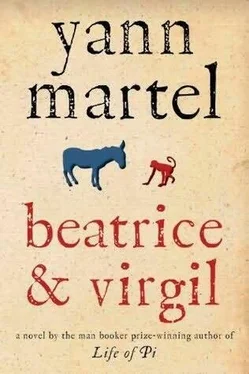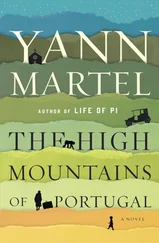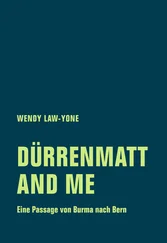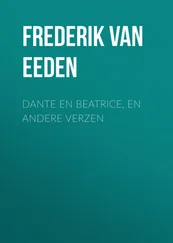Yann Martel - Beatrice and Virgil
Здесь есть возможность читать онлайн «Yann Martel - Beatrice and Virgil» весь текст электронной книги совершенно бесплатно (целиком полную версию без сокращений). В некоторых случаях можно слушать аудио, скачать через торрент в формате fb2 и присутствует краткое содержание. Жанр: Современная проза, на английском языке. Описание произведения, (предисловие) а так же отзывы посетителей доступны на портале библиотеки ЛибКат.
- Название:Beatrice and Virgil
- Автор:
- Жанр:
- Год:неизвестен
- ISBN:нет данных
- Рейтинг книги:5 / 5. Голосов: 1
-
Избранное:Добавить в избранное
- Отзывы:
-
Ваша оценка:
- 100
- 1
- 2
- 3
- 4
- 5
Beatrice and Virgil: краткое содержание, описание и аннотация
Предлагаем к чтению аннотацию, описание, краткое содержание или предисловие (зависит от того, что написал сам автор книги «Beatrice and Virgil»). Если вы не нашли необходимую информацию о книге — напишите в комментариях, мы постараемся отыскать её.
A famous author receives a mysterious letter from a man who is a struggling writer but also turns out to be a taxidermist, an eccentric and fascinating character who does not kill animals but preserves them as they lived, with skill and dedication – among them a howler monkey named Virgil and a donkey named Beatrice…
Beatrice and Virgil — читать онлайн бесплатно полную книгу (весь текст) целиком
Ниже представлен текст книги, разбитый по страницам. Система сохранения места последней прочитанной страницы, позволяет с удобством читать онлайн бесплатно книгу «Beatrice and Virgil», без необходимости каждый раз заново искать на чём Вы остановились. Поставьте закладку, и сможете в любой момент перейти на страницу, на которой закончили чтение.
Интервал:
Закладка:
Henry often used the same lighthearted example in his replies: if I tell a story about a dentist from Bavaria or Saskatchewan, I have to deal with readers' notions about dentists and people from Bavaria or Saskatchewan, those preconceptions and stereotypes that lock people and stories into small boxes. But if it's a rhinoceros from Bavaria or Saskatchewan who is the dentist, then it's an entirely different matter. The reader pays closer attention, because he or she has no preconceptions about rhinoceros dentists-from Bavaria or anywhere else. The reader's disbelief begins to lift, like a stage curtain. Now the story can unfold more easily. There's nothing like the unimaginable to make people believe.
Letters came from the postal ether and his replies returned to the postal ether. It was rare that Henry's satchel didn't contain his little author kit: cards, stamps, envelopes and a batch of letters from readers.
And then one winter day Henry received a large envelope from not so far away. It came from within the city, he saw, looking at the return address, but it had travelled the usual circuitous route, in this case via his British publisher. It was clearly from a reader, and one who had much to say, he noted with a sigh, as he felt the thickness of the envelope. He added it to his pile of mail.
He opened it a week later at home. The letter was mostly a photocopy of a short story by Gustave Flaubert, "The Legend of Saint Julian Hospitator". Henry had never heard of it, had only ever read Flaubert's Madame Bovary. He was perplexed. He flipped through the story. It was longish and several sections were highlighted in bright yellow. He put it down, wearied at the effort he was being asked to make for a stranger. Perhaps this would be one reader whose letter he would ignore. But while making himself a coffee, he changed his mind. The question niggled at him: why would a reader send him a short story by a nineteenth-century French writer? He went to the study to look up the word hospitator . He found it in the full Oxford, the small print bulging under the magnifying glass: "one who receives or entertains hospitably." Well, if he was being invited… He sat down at the kitchen table and picked up the story again. It started:
Julian's father and mother lived in a castle on the side of a hill in the middle of the woods.
The four towers at the corners of the castle had pointed roofs with lead cladding, and the foundations of the walls stood on rock outcroppings that fell away steeply to the bottom of the moat.
The stones of the courtyard were as clean as the paving stones in a church. Gargoyles in the form of dragons with their heads facing downward spat the rainwater into the cistern…
Within… tapestries in the bedchambers gave protection from the cold… cupboards were bursting with linens… cellars piled high with casks of wine…
So, a fable set during the Middle Ages. Henry pulled off the paper clip that held the story together and looked at the next page. Here was the lord and master:
He would stride through his castle, always wrapped in a cloak of fox pelts, dispensing justice to his vassals…
And here the mother, with the answer to her prayers:
… very fair of skin… After many prayers, she bore a son.
… great rejoicing… a feast that lasted three days and four nights…
He read on:
One night she awoke and saw in a ray of moonlight… the shadowy figure of an old man… a hermit… without moving his lips:
"Oh, mother, rejoice, for your son will be a saint!"
Farther down the page, the father also hears a prediction:
… was outside the postern gate… suddenly a beggar appeared before him… a Gypsy… stammered these incoherent words:
"Oh! Oh! Your son!… Much blood!… Much glory!… Always blessed by fortune! The family of an emperor."
The son, Julian:
… looked like the baby Jesus. He cut his teeth without ever crying.
… his mother taught him to sing. To teach him courage, his father lifted him up onto a big horse…
A learned old monk taught him the Holy Scriptures…
… the lord of the castle gave feasts for his old companions in arms… they would share memories of the wars they had fought… the terrible wounds… Julian cried out with delight as he listened to them… his father had no doubt that he would one day be a conqueror. But… when he came out after the Angelus… the bowing paupers… would reach into his purse with such modesty… his mother truly expected he would one day be an archbishop.
… in the chapel… no matter how long the service… on his knees on his prie-dieu… hands joined in prayer.
Henry then came upon an indication of his reader's intent in sending him the story, some paragraphs the reader had neatly and precisely highlighted in yellow concerning young Julian:
One day during mass, he looked up and noticed a little white mouse come out of a hole in the wall. It scurried along the first step to the altar, ran back and forth two or three times, then fled the way it had come. The following Sunday, he was troubled by the thought that he might see the mouse again. It did come back, and every Sunday he would wait for it and would become irritated, until he came to hate it and resolved to rid himself of it.
Having closed the door and sprinkled crumbs of cake on the stairs, he stationed himself in front of the hole with a stick in his hand.
After a very long time, a pink muzzle appeared, followed by the rest of the mouse. He hit it lightly with his stick and was astounded to see the small body lying there motionless. There was a drop of blood on the stone floor. He quickly wiped it up with his sleeve and threw the mouse outside, and said nothing to anyone.
The next page contained another section that was brought to his attention:
One morning as he was walking back along the rampart, he saw a fat pigeon basking in the sun on top of the battlement. Julian stopped to look at it. There was a breach at this place in the castle wall and his hand fell on a broken piece of stone. He swung his arm and the stone hit the bird, which plummeted into the moat.
He scrambled down after it, scratching himself on the underbrush, searching everywhere, more lively than a puppy.
The pigeon, its wings broken, was suspended quivering in the branches of a privet bush.
Its refusal to die irritated the child and he set about to wring its neck. The bird's convulsions made his heart beat faster, filling him with a wild, tumultuous joy. As the bird finally stiffened, he felt faint.
That was the connection, then, in his reader's mind: animals, the killing of. Henry was not shocked. The animals in his novel were not sentimental caricatures. Though used for a literary purpose, they were wild animals, which he attempted to portray with exact behavioural accuracy, and wild animals kill and are killed in a routine way. He intended his story for adults and he allowed himself all the animal violence it required. So a mouse and a pigeon killed by a child exploring the limits of life, getting a feel for death-that was nothing to ruffle him.
He turned the pages. Julian becomes a relentless hunter, with his reader's faithful highlighter as witness:
… preferred to hunt on his own, with his horse and his falcon… would soon fly back, tearing apart some bird…
… took herons, kites, crows and vultures in this way.
… loved to sound his horn and ride behind his dogs… the stag… as the dogs tore at its flesh…
On misty days… go deep into a marsh… geese, otters and wild ducks.
… slew bears with a knife, bulls with a hatchet and wild boar with a spear…
… basset hounds… rabbits… rushed at them… broke their backs.
… a mountain peak… two wild goats… approached barefoot… plunged a dagger…
Читать дальшеИнтервал:
Закладка:
Похожие книги на «Beatrice and Virgil»
Представляем Вашему вниманию похожие книги на «Beatrice and Virgil» списком для выбора. Мы отобрали схожую по названию и смыслу литературу в надежде предоставить читателям больше вариантов отыскать новые, интересные, ещё непрочитанные произведения.
Обсуждение, отзывы о книге «Beatrice and Virgil» и просто собственные мнения читателей. Оставьте ваши комментарии, напишите, что Вы думаете о произведении, его смысле или главных героях. Укажите что конкретно понравилось, а что нет, и почему Вы так считаете.












